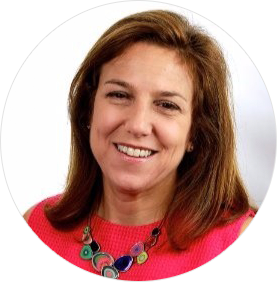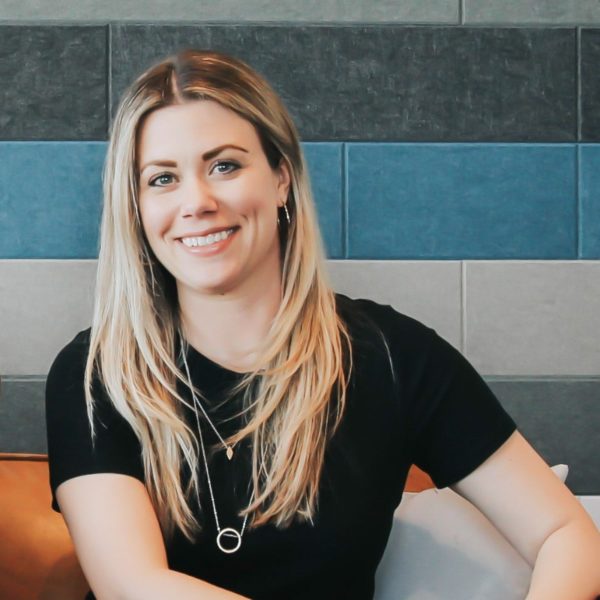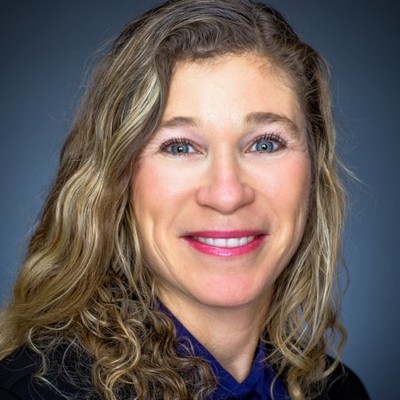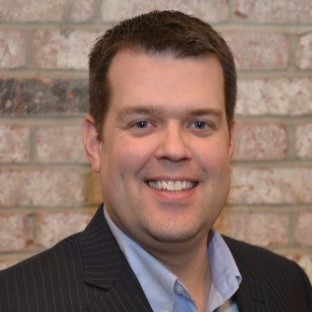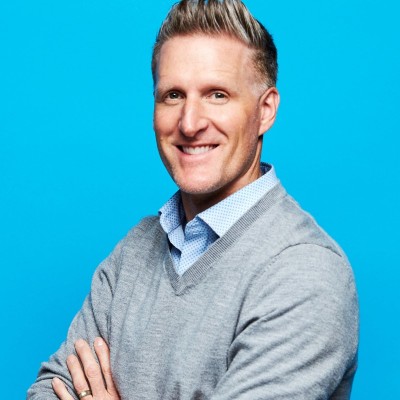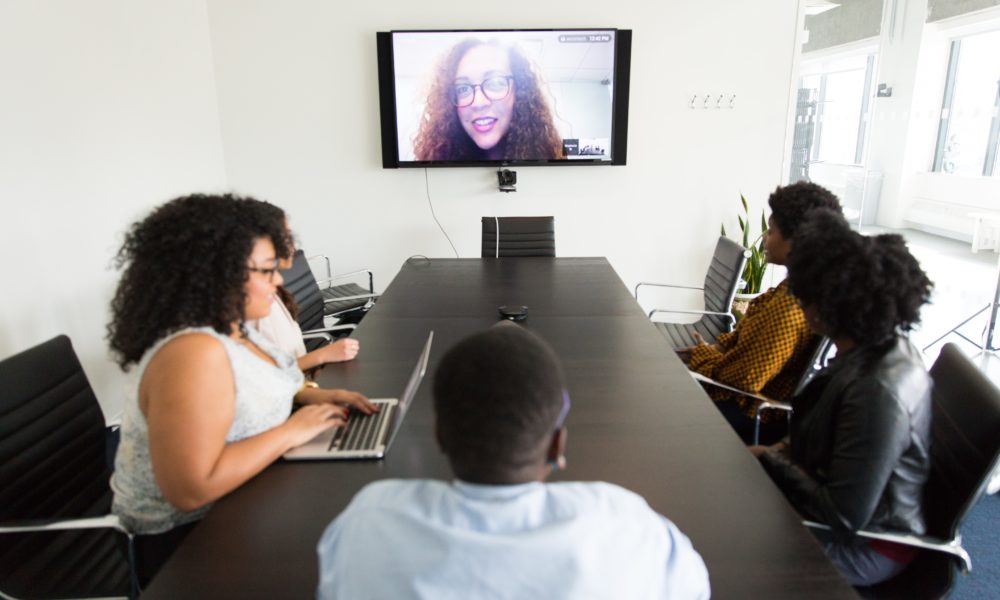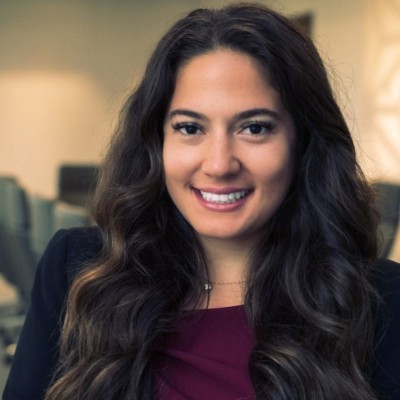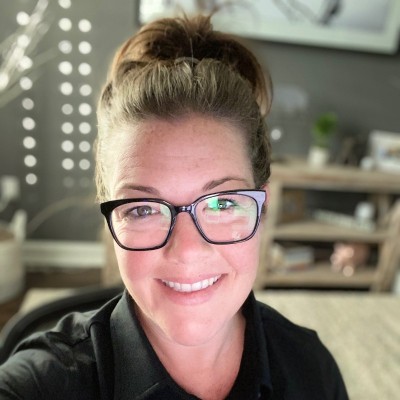Episode 165: Jill Guardia on Managing Transitions with Flexibility and Agility
2.4K Views | 17 Min Read
Shawnna Sumaoang: Hi, and welcome to the Sales Enablement PRO podcast, I’m Shawnna Sumaoang. Sales enablement is a constantly evolving space, and we’re here to help professionals stay up to date on the latest trends and best practices so that they can be more effective in their jobs.
Today, I’m excited to have Jill Guardia at TriNet join us. Jill, I would love for you to introduce yourself, your role, and your organization to our audience.
Jill Guardia: Thanks, Shawnna. I’m super excited to be here myself. I am a big fan, so I am happy to also get the stage if you will. Jill Guardia, I’m here in the Boston, Massachusetts area. I have been with TriNet for four-plus years and before that have had a variety of sales enablement roles, even back to the days of old sales training roles through a lot of different software companies such as Symantec, Groove Networks, Constant Contact, and Rapid7. I’ve been around the bend, if you will.
TriNet is what we call a PEO, or a professional employer organization, and what that means is that we partner with small to midsize companies to do a lot of their HR services so they can focus on what they do best, which is the passionate management of the business that they started. I’m excited to be here.
SS: Well, I’m excited to have you as well, Jill. I believe right now is actually a really exciting time for your team. I heard that you guys are growing and scaling the Enablement Org over at TriNet, and so I’d love to talk to you today a little bit about your advice on how to approach a transition into a new sales enablement role.
I think there’s been a lot of change that has occurred in the past year with the shift of virtual, and now a lot of organizations are trying to figure out how to go back into maybe hybrid or in-person environments. I’d love to just start there. What advice do you have for how practitioners can set them up for success if they’re starting a new sales enablement role amidst all this change?
JG: Yeah. I mean, it’s a great time to be in sales enablement and there are a lot of roles opening to both to supplement existing teams or to start teams brand new. I think sales forever has changed. We’ve talked about the changes in sales over the years, about how the buyer is so much more informed. That’s certainly something that has really weighed into a lot of decisions that sales enablement practitioners are considering, but now we add in the whole world changing post pandemic and you’re right, companies will probably do some things very differently. Probably have some sort of hybrid approach to how they sell and how they enable their teams, how to keep them motivated.
For a sales enablement practitioner, I think we should start with the old adage of listen and learn. Spend some time listening to your clients, to your customers, to the sales organization across all levels, and be curious. Verify and validate what they’re saying to you. If one person says it, is it gospel? Do you need to hear from other people? Where is the trend so that you really know that you’re putting your energies into the right places?
I think you need to think about, who are your advocates, your evangelists, your go-to people within the selling organization, and create a way to keep them on your hotline number, if you will. Whether it’s a chat, or slack, or just on your cell phone, a straight-up old-fashioned text. Talk to those people and get feedback from them.
Think about removing assumptions, or even better yet, test assumptions. Don’t go into a new opportunity as a sales enablement leader and think, well, I know exactly how this should be, or I listened for three hours now I know what to do. Throw out some ideas, throw out some hypotheses, and test them and see if they’re going to work.
SS: I love that. I think that’s a great technique. Another thing that we expect going into uncertainty with all of the changes is being able to navigate change, in particular at the leadership level. How does leadership turnover impact sales enablement, and what advice do you have for how enablement leaders can effectively manage this change?
JG: Yeah, that’s a big one. I mean, we are all in the business of change in sales enablement. Changing around us, changing the selling environment, changing the leadership team, these are all transitions that you have to deal with on a regular basis. You’re going to have situations where new a leadership team is going to bring in their own teams, and that might leave you in a predicament, but be open to what that means to you and how you can learn something. Or worst comes to worst, leave, but leave on a good foot.
They are calling this coming out of the pandemic, the post-pandemic, as the great resignation. We need to recognize that there’s change afoot in this theory of lots of job changers out there, so you need to think about your relationship with the new leaders. Think about what’s important to you. How have you been successful in the past? How do you build relationships with these people who are now in the seat of power? Find a way to connect first and foremost at a personal level.
After that, think about, I need to be open. Maybe the new leader does enablement a different way. Maybe they would like to hear about how we’re doing it here. Be open to change. Have an open mind, it’s really important. I would say be your authentic self. Don’t play games. It goes without saying, but this is business we’re in, so don’t play games. Come with authenticity and plan for how you’re going to represent you, how you’re going to represent your team.
Don’t try to flood the new leader with we did this, and we were successful here, and we always do this, and this is the way we’ve done it, because you’ve lost them right from the start. On the other end of that, I would encourage full transparency and open, honest communication. You’re probably not perfect in your role today, and so as you meet and engage with your new leader, talk about some of the things that you’ve struggled with, some of the things that you would love to do better. I think coming with that open mindset is really going to make a difference as you learn and transition into a new team.
SS: I think that open mindset is absolutely critical. What would you say from your perspective are some of the other core skills and attributes that sales enablement practitioners need to be successful in sales enablement today?
JG: Yeah. I think that the post-pandemic world and really what’s happened in the last, what 15, 18 months has really just identified that we all need to be thinking and acting much more flexibly. We turned on a dime to transition all going home and working from an environment that we weren’t normally working in, and we were both flexible and adaptable. I think as we come out of that and look at the new world, we also have to keep that skill, so flexibility and adaptability would be really important I think.
Also, ongoing would be just empathy for the seller, their environment is changing underfoot. The world is so different, but it’s also the same. You really need to put yourself in the shoes of the selling organization that you’re supporting. I think you need to work with urgency as long as you’re working on the right things. You have to balance between important and urgent. And then the last thing, be willing to make mistakes. You learn from your mistakes. That’s how we get better at what we do.
SS: Absolutely. Now, Jill, you are from my perspective, and I know many in the sales enablement industry view you as not only an enablement leader within your own organization, but amongst the community of enablement professionals. I’d love to understand from you, what are some of your top tips for how enablement professionals can advance their own careers within the enablement field?
JG: I love that question too, Shawnna, because it is a great time to be in the world of sales enablement, revenue enablement, or whatever employee experience and enablement. It’s really getting very broad. I think that, like we often talk to sellers it’s about building your ecosystem, networking. You need to think like a seller and create an environment around you of people who can help you succeed. Now, some of those people are going to be in sales enablement, and some of them might be in sales operations, or they might be in true seller roles, but I think you need to think through, what does your own personal ecosystem look like?
I would add to that, there’s so many enablement organizations that are coming out, Sales Enablement PRO, of course, SE Society as well, and there are other little groups that are bubbling up. Find one that works for you. You might not want a big, broad one, you might want something really local, you might want something that networks on a monthly basis. You need to find something that you can invest in and make the time for and prioritize.
As I was thinking about our conversation today and I went back to a 1995 issue of Fast Company, and probably some of the listeners may not have even been born yet in 1995, but there was one of the early Fast Company magazines that came out and it said, “work is personal.” I remember that headline, even though it’s so long ago, because it really resonated even for me and my career around sales enablement. Some of my best friends are enablement practitioners. This has become a lifelong journey, and I think that people will find people who share the same ideas, share the same strategies, share the same values in sales enablement, and they’ll connect with them. Forever, they will all be better people.
SS: I love that. In any enablement role, we’ve talked about being able to partner with those in leadership roles, but getting stakeholder buy-in has always, I think especially for enablement been, an important component of success. I mention this because at one of Sales Enablement PRO’s Sales Enablement Soiree Events back when we were having in-person events, which hopefully we will again very soon, you mentioned in a panel that you were on at that event how critical it is to get 360-degree buy-in, not just at the executive level. How can sales enablement practitioners get buy-in for enablement initiatives across all levels of the organization?
JG: Yeah, that’s a great question because it’s really important. If you just have a relationship with the leadership team, you probably don’t get the results that you want because it becomes more of a police nation. I don’t think anybody really sets out with that goal in mind. It’s important that you, whether you’re a team of one or a team of many, really look across the sales organization and make the time to invest in building those relationships.
With a rep, you might ask to do ride alongs, listen in to phone calls, help coach them If they’re struggling. With a sales manager, you might have a monthly one-on-one and talk about how everyone’s doing on the team and see if there’s any areas that you or someone on your team can support in their growth and development. With the leadership team, it’s gaining buy-in. It’s almost starting at the top with an enablement initiative. I want to get you Mr./Ms. VP through the program so you see the content, you consume it like a rep would, consume it and you give us real actionable feedback about how we can ensure that it’s part and parcel of what we do. We talked about it a little bit already, but it’s about making that investment in the individuals throughout your organization that gravitate to you, gravitate to enablement, gravitate to the content and the programs that you’re delivering. I’m sure everyone knows who they are. You can probably get a list of people off the top of your head. If you think about it, who’s always the first one to do that training? Who’s always the one who says this is great, you should do it?
Work on building and establishing those relationships and use them to help spread the news, spread the wealth, and to give you real practical feedback on everything that you do. Don’t just do it as a one-off, do it continuously, and you’ll find that people will voluntarily give you the feedback that you desire and that you need to do better with what you are doing.
SS: I love that answer, Jill. Now, I’ve enjoyed this entire conversation. I think this is not only exceptionally useful for those that might be looking to go into the role of sales enablement, but even for those that have well-established careers within enablement. I just want to close with one final question because I love that, and you’d mentioned earlier that it’s really important for enablement professionals to be in the mindset of a seller.
I had once heard you mention that selling with curiosity is one of your key priorities for this current year. I think curiosity is so important across multiple professions, but especially within sales enablement. Can you share what this means for your enablement team and how this mindset can help the sales organization get set up for success in the coming years?
JG: That’s a great question. Selling through curiosity is definitely a mindset, and when you take out any “fancy words,” it’s just wanting to know more. When we think about the whole profession of being a seller, our best sellers want to know more. They’re motivated to understand their prospect and how they can solve problems for their prospect. If we take that out of the seller and put it into the seller enablement team, then we’re doing the same thing. We’re asking questions, we’re not ever satisfied, we want to do better. When we do something, anything, whether it’s our kickoff or it’s a new product launch training, before during, and after we say, what could we do better? How would this have been more useful for you?
We have a leadership meeting coming this week and our last poll question is, should we do more of these? It’s as simple yes, no, of course, but it’s the kind of thing that lets you be curious about the types of reactions that you’re going to get. We try and do that whether the projects big or small.
SS: I love that. I tell my team something very similar. That nothing’s ever perfect, and we can always find new ways to improve. Jill, thank you so much for joining us today. I enjoyed this conversation and the opportunity to catch up with you.
JG: Thank you, Shawnna. It was great.
SS: To our audience, thanks for listening. For more insights, tips, and expertise from sales enablement leaders, visit salesenablement.pro. If there’s something you’d like to share or a topic you’d like to learn more about, please let us know. We’d love to hear from you.

